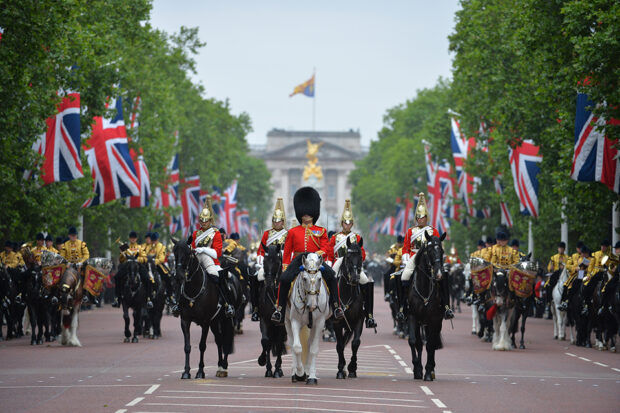There’s widespread reporting about Britain’s youngest suicide bomber in Iraq today, as well as coverage of a US strike on a notorious terrorist in Libya.
Defence spending
The Financial Times reports that the government is “stretching to the limit” what can be counted as defence spending. According to the article, officials said it was “perfectly legitimate” to look at ways of reallocating the overseas aid budget and parts of intelligence and cyber security to the MOD. The article also references comments made by Defence Secretary Michael Fallon last week suggesting that money spent on preventing wars and stabilising countries could be re-categorised as defence spending.
The Daily Telegraph reports on new research which shows the vast majority of Britons believe that the UK should increase the amount spent on the Armed Forces, with over three times more people thinking the defence budget should be increased than those who think it should be cut. The paper also speculates that Western countries that fail to spend more than two per cent of their national income on defence could be “named and shamed” by NATO for the first time in a new league table to be published next week. The UK is estimated to be one of four of NATO’s 28 member states that spent the guideline two per cent figure in 2013.
The Daily Star and The Daily Express report on comments made yesterday by the former head of the Royal Navy Admiral Sir Nigel Essenhigh, who claims that Britain’s defences against threats from the Russia and ISIL are now “feeble” due to military cuts and a lack of action in crisis-hit areas such as Syria, Iraq and Ukraine.
The government’s position on defence spending, which has been quoted widely, is as follows:
With the second largest Defence budget in NATO and the largest in the EU, the Government is committed to spending 2% of GDP on Defence this financial year. Decisions on spending beyond that will be determined in the next Spending Review. As with other NATO member states, from time to time we make updates to how we categorise defence spending. All updates, including spend on peacekeeping, remain fully in accordance with NATO guidelines. This Government was elected with a mandate to maintain the size of regular armed forces, to increase the equipment budget in real terms every year, and to renew our four nuclear ballistic submarines. These commitments will shape the power of our Armed Forces and keep Britain safe.
Suicide bomber
Talha Asmal, 17, from Dewsbury, West Yorkshire, who travelled with a friend to Iraq in April, is reported by The Sun and The Times to be one of four suicide bombers who killed at least 11 people in co-ordinated car bombs in the country on Saturday. The attacks provoked an angry statement from Asmal's family in which they said that his handlers had preyed on his "innocence and vulnerability" before apparently ordering him to his death.
US air strike
The Daily Telegraph and The Independent report claims by the Libyans authorities that Mokhtar Belmokhtar, the al-Qaeda jihadist known as the “one-eyed sheikh” who led the 2013 attack on an Algerian gas plant that killed 39 people, has been killed in a US air strike. The Pentagon confirmed it has struck an “al-Qaeda-associated militant” in Libya on Saturday night, and that it was assessing the success of the operation.
Brecon Beacons inquest
There is further coverage of the on-going inquest into the deaths of three SAS reserves recruits in The Times, which says that the widow of one of the men who died during a selection exercise has complained that MOD officials have been going through bins at the inquest, and that witnesses had access to documents not seen by the coroner.
Jonathan Hall, QC, for the MOD, said that the bin searches were “not some sinister intent” and added: “The steps taken were to secure that documentation, although I accept it was done in a way that was not correct.” Post-mortem and toxicology reports are scheduled to be presented at the inquest today, which will reveal whether any of them used performance-enhancing drugs.
RAF jets
In a repeat of a story previously featured in The Daily Star on 23 March, The Daily Express incorrectly reports that a third of the RAF’s front line jets are not fit for frontline operations, with RAF tornados having ‘taken a real battering attacking Islamic State’. The commentary in the article is untrue, and the figures quoted show normal fleet management in which our aircraft regularly undergo routine maintenance or upgrades to ensure they are both safe to fly and continue to operate at optimum performance levels. Our full statement, provided to both the Star and the Express, is as follows:
An RAF Spokesman said:
The RAF has the front line aircraft it needs to fulfil its designated operational tasks, this has been shown by the high level of activity that ensured the success of operations in Afghanistan and continuing operations over Iraq, it is therefore wrong to suggest these figures show gaps in our air capability. Modern military aircraft are highly sophisticated and complex machines which require regular maintenance to keep them both safe to fly and at optimum performance levels, with this in mind, aircraft availability rates change considerably over very short periods of time.
Image of the day

Follow us on Twitter and don’t forget to sign up for email alerts.
